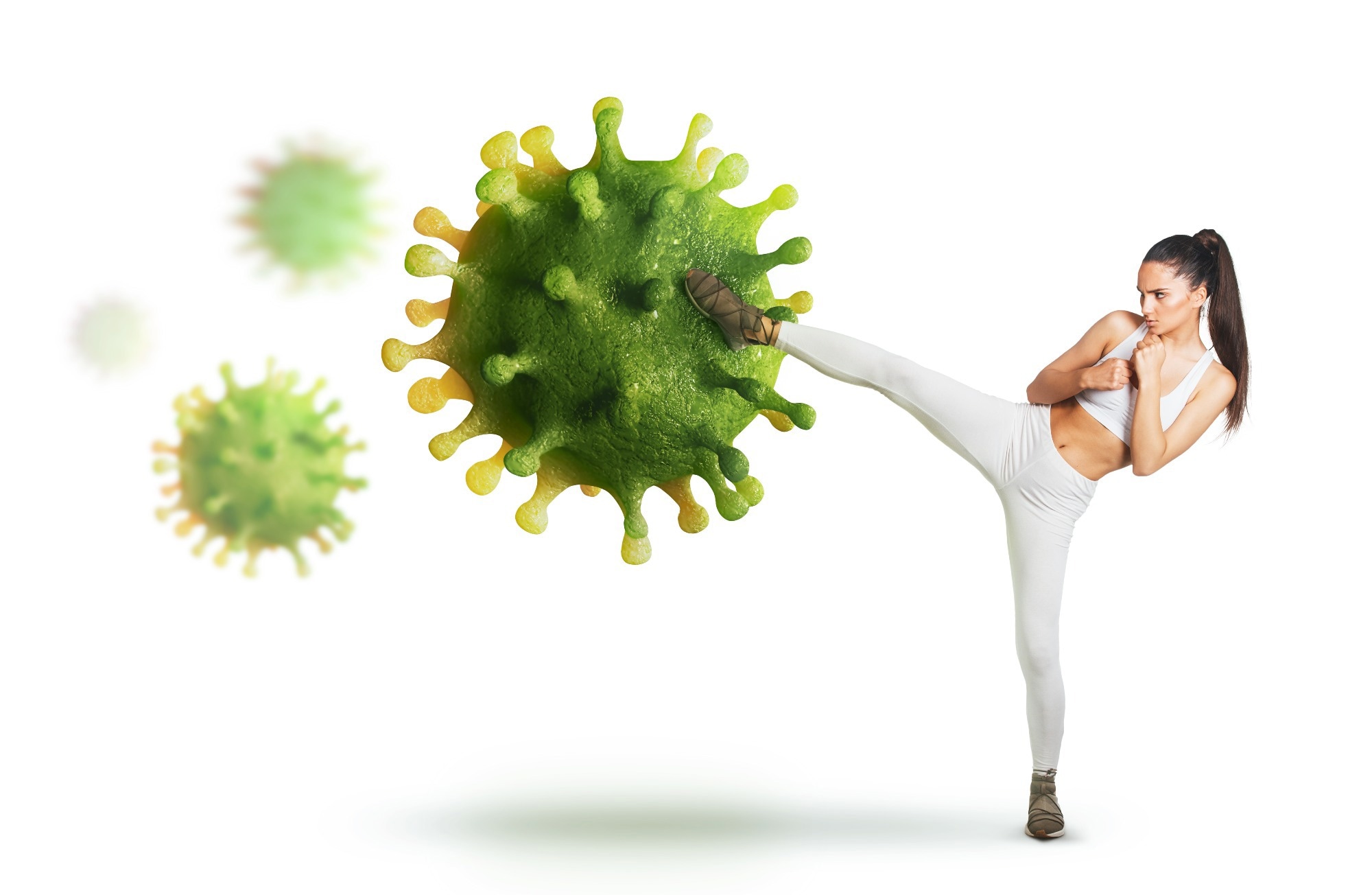To this end, they compared SARS-CoV-2 spike (S)-specific immunity among unvaccinated and vaccinated SARS-CoV-2 convalescent individuals and coronavirus disease 2019 (COVID-19)-naïve vaccinated individuals.
 Study: Prior SARS-CoV-2 infection enhances and reshapes spike protein–specific memory induced by vaccination. Image Credit: Tijana Moraca / Shutterstock
Study: Prior SARS-CoV-2 infection enhances and reshapes spike protein–specific memory induced by vaccination. Image Credit: Tijana Moraca / Shutterstock
Background
There is a need for more accurate knowledge of variable parameters, such as vaccination modalities that leave an imprint on the immune memory of individuals vaccinated against SARS-CoV-2.
Researchers need these insights because despite large-scale COVID-19 vaccine coverage, people, especially in Western countries, are still experiencing SARS-CoV-2 reinfection. However, the belief that hybrid immunity confers superior protection against the virus requires experimental validation.
Naturally, SARS-CoV-2 S-specific neutralizing antibodies (nAbs) levels decline (or wane) in the blood serum, especially six months after vaccination or infection, which correlates with an increased risk of reinfection. In addition, vaccine-elicited nAbs poorly neutralize new SARS-CoV-2 variants of concern (VOCs), like Omicron.
Most importantly, besides serum Abs, immune memory has a cellular component comprised of memory T and B lymphocytes, which actively launch a rapid, augmented immune response if the immunological memory barrier fails to prevent reinfection.
About the study
In the present study, researchers performed a longitudinal analysis on 613 individuals and broadly categorized the groups as follows:
- individuals who recovered from severe or mild COVID-19,
- people who were infected but received two or one dose of Pfizer (BNT162b2) or AstraZeneca (ChAdOx1) vaccine, respectively, and
- people never infected by SARS-CoV-2 but fully vaccinated
The researchers monitored their clinical characteristics and SARS-CoV-2 S- or receptor binding domain (RBD)-specific humoral and cellular immunity six months after infection or vaccination. They used multiparameter flow cytometry (FC) for analyzing the SARS-CoV-2 RBD-specific memory B cells (mBC) compartment.
Further, the team collected a blood sample between vaccination and the six months follow-up period to estimate the varying infection rate among convalescent vaccinated and SARS-CoV-2 naïve vaccinated individuals.
In addition, they monitored the occurrence of breakthrough infections in all study groups using the bioMerieux Vidas assay that measured RBD IgG titers against the SARS-CoV-2 nucleocapsid (N) antigen. The rebound of RBD-specific nAb titers indicated breakthrough infection, not their steady decline.
Results
The first and foremost study finding was that the concentrations of serum RBD-specific IgGs were the highest among convalescent vaccinated patients, regardless of the vaccination regimen, as these individuals had hybrid immunity.
Using a West Nile virus murine infection model, researchers demonstrated that mBCs recognize variants of the original pathogen more efficiently than the Abs produced by long-lived plasma cells (PCs).
Kotaki et al. proved this in humans in the context of SARS-CoV-2 vaccinated people. They showed that the mBCs pool preserved broadly reactive Abs specificities that recognized the Delta and Omicron SARS-CoV-2 variants but not their sera.
The current study data also showed that mBCs were less susceptible to quantitative variations than their humoral counterparts but were more subject to qualitative changes dictated by an individual's infection history.
Remarkably, individuals in the hybrid immunity group displayed increased frequencies of immunoglobulin D (IgD)−a cluster of differentiation (CD)27− mucosa-targeted mBC subset called double-negative type 2 (DN2) MBCs. In addition, an enhanced T helper cell 1 (TH1) polarization characterized their S–specific follicular T helper (TFH) cell pool.
The increased abundance of the memory DN2 mBC subset demonstrated how vaccinating previously infected convalescent individuals-initiated changes in the mBC landscape. Together, this data reinforced how the serological component of the mBC pools, its compositional reshaping, and trafficking pattern occurred in individuals with hybrid immunity.
Besides more DN2 mBCs, IgA-switched RBD-specific mBCs profusion was another unique feature of hybrid immunity. IgA is a crucial immune component at mucosal surfaces, including in the upper respiratory tract, where SARS-CoV-2 initiates infection. Indeed, SARS-CoV-2 infection triggered higher frequencies of IgA-switched mBCs than vaccination.
Conclusions
To conclude, the study data favored boosting previously SARS-CoV-2-infected individuals. Vaccination of such individuals primed their immune system more effectively than the vaccination alone and helped them build superior serological and mBC responses at gut mucosal sites and airways. Another proof of the superiority of hybrid immunity is its correlation with the expansion of the DN2 mBC subtype that displayed a mucosal-limited tropism.